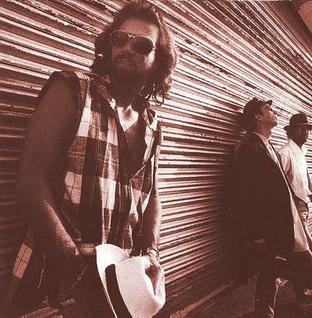
"For Whom the Bell Tolls" is a song by the Bee Gees, released on 15 November 1993 as the second single from their 20th studio album, Size Isn't Everything (1993). It peaked at number four on the UK Singles Chart and number six in Ireland. This song would be the band's highest-charting single in the UK during the 1990s, giving them a UK top-five single in four consecutive decades: the 1960s, 1970s, 1980s, and 1990s. A music video, filmed in New York, was also released for this song.

"Opal Mantra" is a song by Northern Irish rock band Therapy?, released as a single on 16 August 1993 through A&M Records. It was issued on clear 7-inch vinyl, blue 7-inch vinyl, CD digipak, CD, and cassette. It reached number 14 on the UK Singles Chart, number six on the Irish Singles Chart, and number 30 on the Swedish Singles Chart.

"Perfect Skin" is a song by the British rock and pop band Lloyd Cole and the Commotions, released in 1984 as the debut single from their debut studio album Rattlesnakes. The song was written by Lloyd Cole and produced by Paul Hardiman. It peaked at number 26 in the UK Singles Chart and remained in the top 100 for ten weeks.
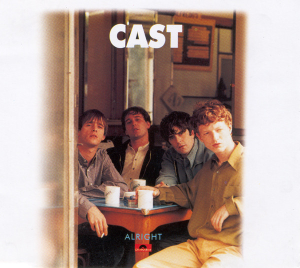
"Alright" is the second single by the Liverpool Britpop band Cast, fronted by ex La's bassist John Power. The song was the second single taken from their debut album, All Change (1995), and reached number 13 on the UK Singles Chart.
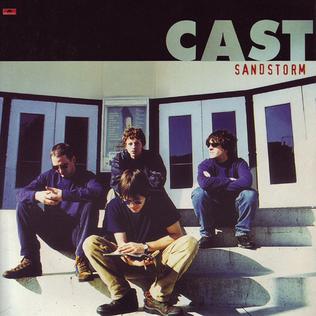
"Sandstorm" is a song by the Liverpool Britpop band Cast. The song is the third single released from the band's debut studio album, All Change (1995). "Sandstorm" peaked at number eight on the UK Singles Chart in January 1996.

"Guiding Star" is the seventh single by Liverpool Britpop band Cast, fronted by ex La's bassist John Power. Released on 16 June 1997 as the second single from Cast's second studio album, Mother Nature Calls (1997), the song reached number nine on the UK Singles Chart.

"Universe" is a song by English rock band Slade, released in December 1991 as the second single from their compilation album Wall of Hits (1991). It was written and produced by bassist Jim Lea. "Universe" reached number 76 in the UK Singles Chart and was the band's last single before disbanding in 1992.

"I've Got to Go Now" is a song written by David Ricketts and Toni Childs and released as the first single from Childs' second album, House of Hope (1991). The lyrics tell a tale of a woman leaving an abusive relationship. In a review of House of Hope, Tom Demalon of AllMusic said, "Childs dramatic vocals imbue the protagonist with willful, albeit fragile, resolve and a spirit that is moving."

"Wild Women Do" is a song by American singer-songwriter Natalie Cole. The song was written by Greg Prestopino, Sam Lorber, and Matthew Wilder for the 1990 romantic comedy film Pretty Woman and was included on the film's soundtrack as the opening track. The song contains influences from pop, rock, R&B, and soul music, and its lyrics describe an independent woman who lives a wild life. In 1990, the song was also included on certain re-issues of Cole's 1989 album Good to Be Back.

"Tetris" is a song arranged by English composer Andrew Lloyd Webber and English record producer Nigel Wright, collaborating under the pseudonym Doctor Spin. The composition is based on the theme to the 1989 Game Boy game Tetris, which itself is based on the Russian folk song "Korobeiniki". Doctor Spin released their version of "Tetris" on 21 September 1992 through Polydor and Carpet Records; it reached number six on the UK Singles Chart and also charted in Austria, Finland, and Ireland. This song, along with "Supermarioland" by Ambassadors of Funk, commenced a brief trend of recreated video game music entering mainstream popularity.

"No Blue Skies" is the debut solo single by English singer, songwriter and musician Lloyd Cole, released in 1990 from his self-titled studio album. The song was written by Cole and produced by Cole, Fred Maher and Paul Hardiman. It peaked at number 42 in the UK Singles Chart and remained in the top 100 for four weeks. Cole has described "No Blue Skies" as "very simple" and a "girl leaves boy or boy leave girl" song.

"Downtown" is a song by English singer, songwriter and musician Lloyd Cole, released in 1990 as the third and final single from his self-titled studio album. The song was written by Cole and Blair Cowan, and produced by Cole, Fred Maher and Paul Hardiman. It failed to enter the UK Singles Chart but reached number 5 on the US Billboard Modern Rock Tracks chart. The song was included in the soundtrack of the 1990 American psychological thriller film Bad Influence.

"She's a Girl and I'm a Man" is a song by English singer, songwriter and musician Lloyd Cole, released in 1991 as the lead single from his second studio album Don't Get Weird on Me Babe. The song was written by Cole and Robert Quine, and produced by Cole, Fred Maher and Paul Hardiman. It peaked at number 55 in the UK Singles Chart and remained in the top 75 for two weeks. In the US, it reached number 7 on the Billboard Modern Rock Tracks chart.

"From the Hip" is a song by British band Lloyd Cole and the Commotions, released in 1988 as an extended play from their third and final studio album Mainstream (1987). The song was written by the band and produced by Ian Stanley. It peaked at number 59 in the UK Singles Chart and remained in the top 75 for two weeks.

"Jennifer She Said" is a song by British band Lloyd Cole and the Commotions, released in 1987 as the second single from their third and final studio album Mainstream (1987). The song was written by the band and produced by Ian Stanley. It peaked at number 31 in the UK Singles Chart and remained in the top 75 for five weeks.
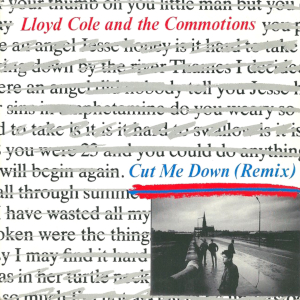
"Cut Me Down" is a song by the British rock and pop band Lloyd Cole and the Commotions, released in 1986 as the third single from their second studio album Easy Pieces. The song was written by Lloyd Cole and produced by Clive Langer and Alan Winstanley. It peaked at number 38 on the UK Singles Chart and remained in the top 75 for four weeks.
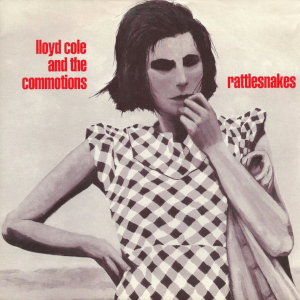
"Rattlesnakes" is a song by British band Lloyd Cole and the Commotions, released in 1984 as the third and final single from their debut studio album of the same name. The song was written by Lloyd Cole and produced by Paul Hardiman. It peaked at number 65 in the UK Singles Chart and remained in the top 100 for three weeks.
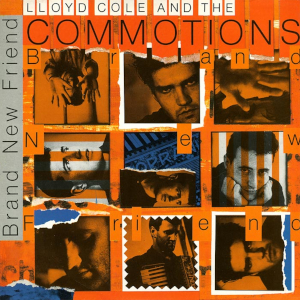
"Brand New Friend" is a song by British band Lloyd Cole and the Commotions, released in 1985 as the lead single from their second studio album Easy Pieces. The song was written by band members Lloyd Cole and Blair Cowan, and produced by Clive Langer and Alan Winstanley. It peaked at number 19 in the UK Singles Chart and remained in the top 100 for nine weeks.

"Weeping Wine" is a song by English singer, songwriter and musician Lloyd Cole, released in 1991 as the second single from his second studio album Don't Get Weird on Me Babe. The song was written by Cole, and produced by Cole, Fred Maher and Paul Hardiman.
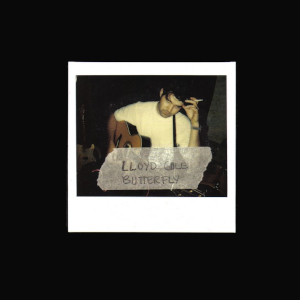
"Butterfly" is a song by English singer, songwriter and musician Lloyd Cole, released in 1991 as the third and final single from his second studio album Don't Get Weird on Me Babe. The song was written by Cole, and produced by Cole, Fred Maher and Paul Hardiman.




















